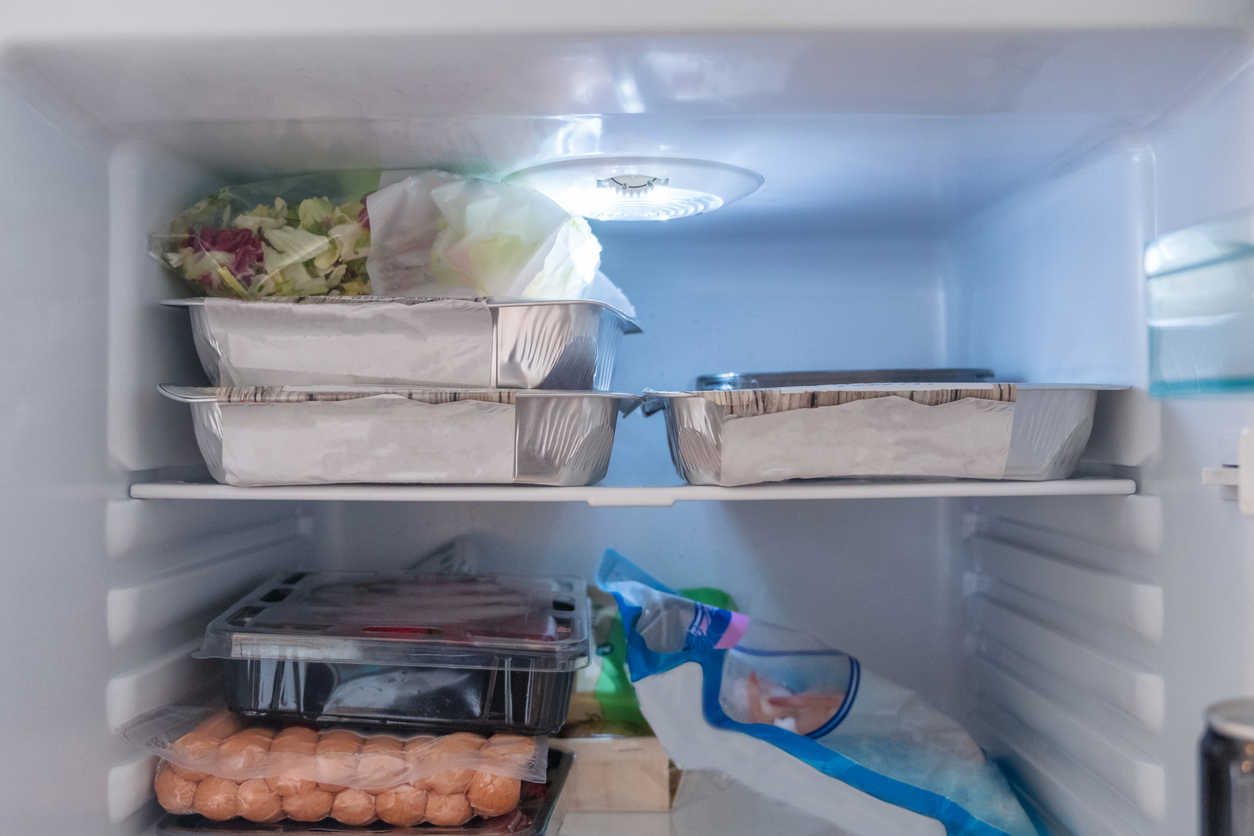As the coronavirus continues to keep all of us at home in Colorado there is no time like the present to organize those meats you are stocking up on at home. In this week’s Gourmet Meat & Sausage Shop blog we breakdown the best ways to make your purchase or essentials last longer.
Storing Fresh Meats in the Fridge
Organizing your refrigerator is not only a good idea but ensures that your meat juice is not contaminating your fresh fruits and vegetables.
If these meats are going to be consumed in the next two days store them in your refrigerator. If not, label them and place them in a freezer bag with the date on it. Cooked and raw meats can be safely stored in your freezer don’t be shy about cooking up that chicken or beef and freezing for a rainy day.
If you plan on planning out those meals ALWAYS store your meats on the lowest levels of your fridge or towards the bottom of the fridge. And if your meats are in that plastic packaging and not sealed you should move it into a plastic container so that those meat juices don’t drip or leak onto your shelves or drawers. Raw meat bacteria could not only make you sick but mess up your other refrigerated items.
Because we are a Colorado butcher shop, we tend to pound those chicken breasts or slice your meats for you but if we didn’t trim those meats take the time to do it before placing it in the freezer.
Storing and Organizing Meats in the Freezer
As aforementioned, if you are going to freeze your meat make sure it’s in a sealable container and labeled with a date. For quick and easy dinners, individually wrap your steaks, chicken breasts or any cut of meat in butcher paper and then place in a large freezer bag especially if you bought in bulk.
Place older packages of meats towards the front of the freezer and move newer ones to the back. For added inventory control use wire baskets or bins in your freezer organized by the type of meat in each bin.
When Good Meats Have Gone Bad and When to Toss Them
Sometimes meats will spoil and it’s important to know when that happens and it’s always best to err on the side of caution. Meats should NEVER have a slimy surface and if that beef has a sulfur odor it’s gone bad. In fact, any meats that have an offensive odor should be tossed.
Your ideal freezer temperature should be 0 degrees Fahrenheit and your refrigerator should be at 34-40 degrees Fahrenheit.


